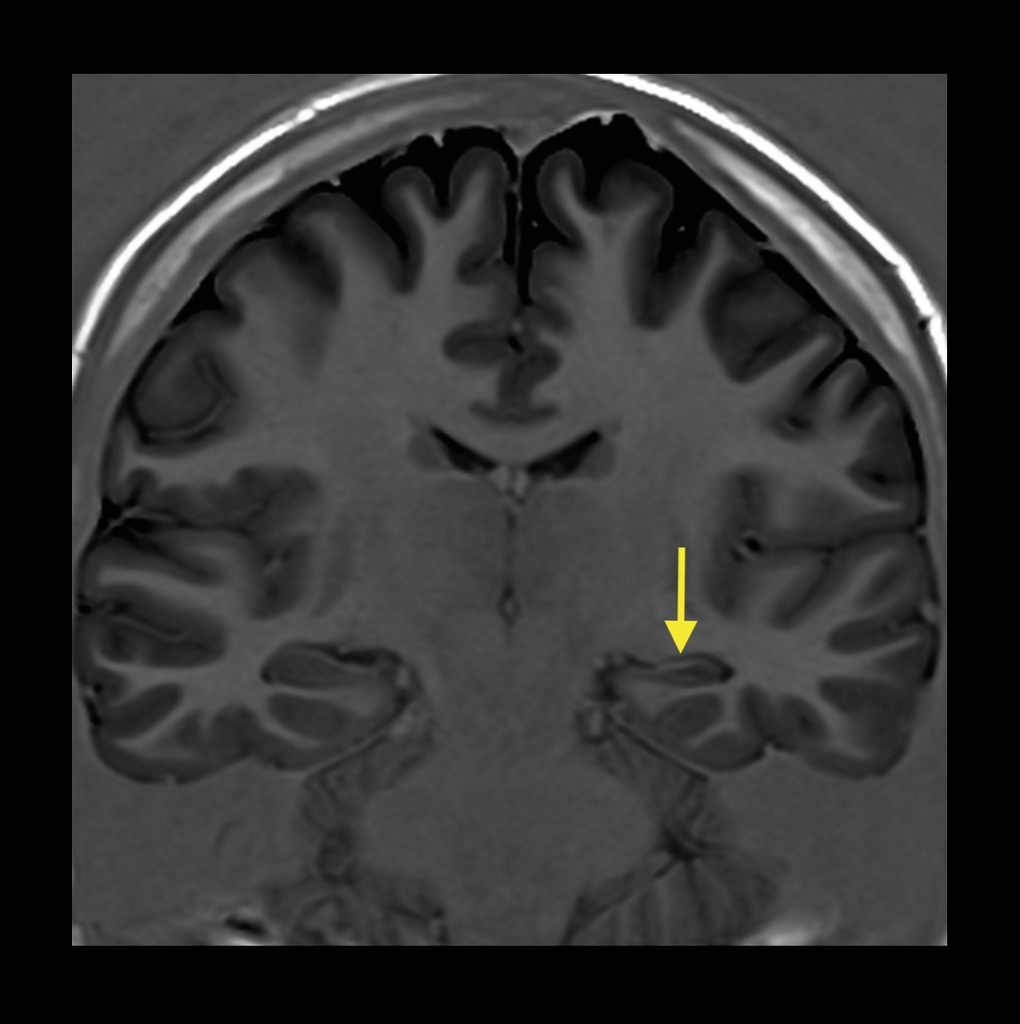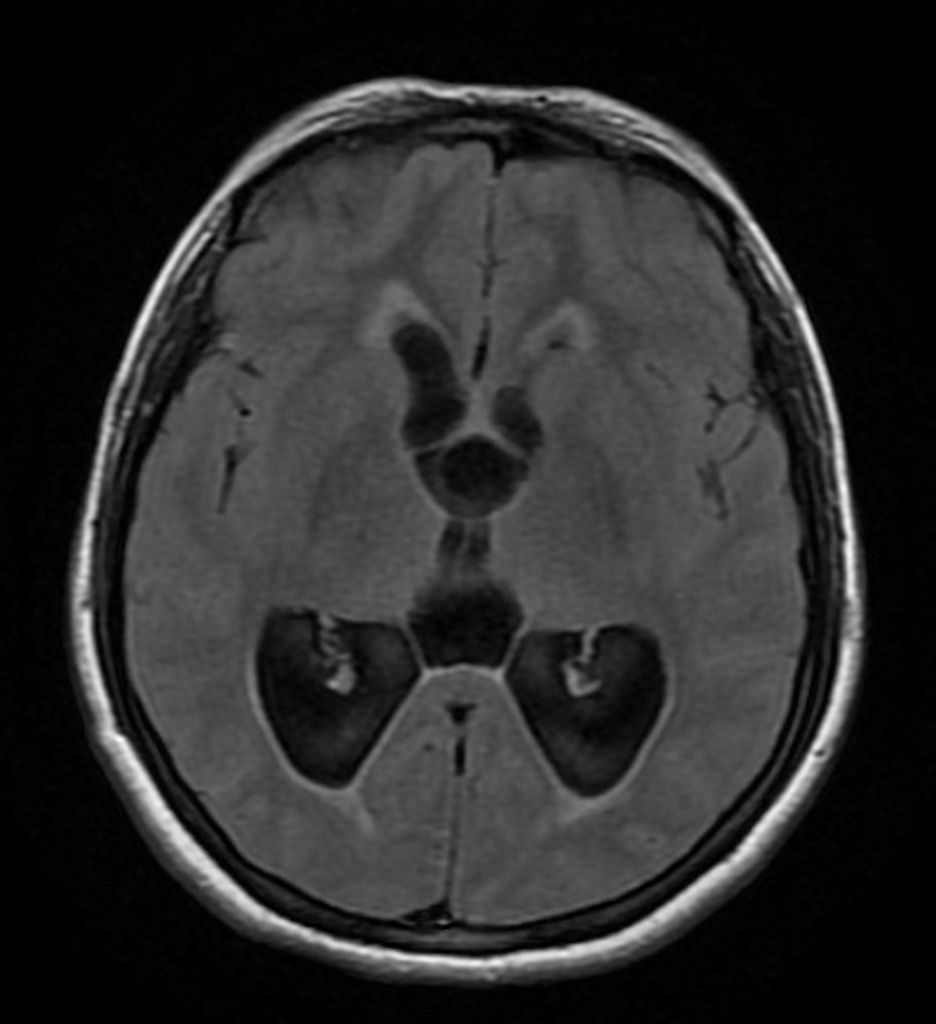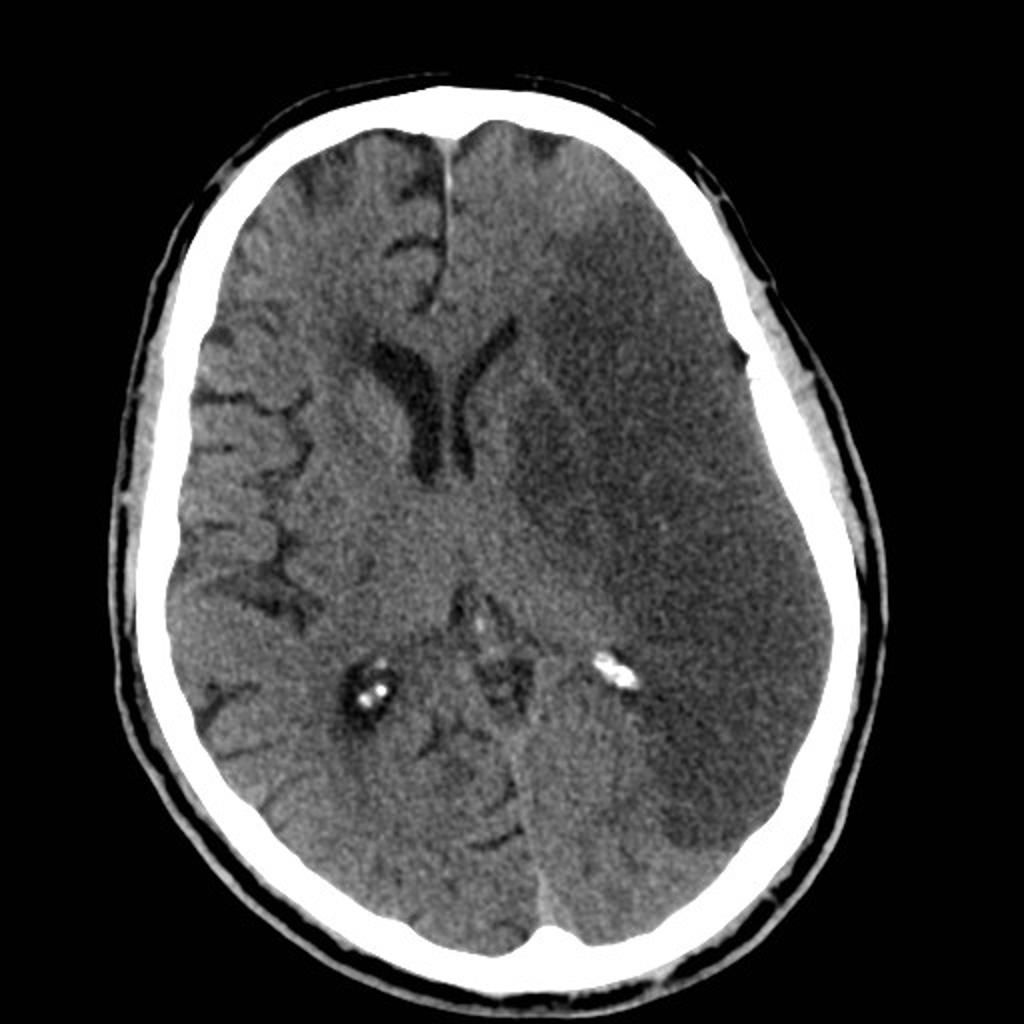Epilepsy MRI
 From Wikidoc - Reading time: 2 min
From Wikidoc - Reading time: 2 min
|
Epilepsy Microchapters |
|
Diagnosis |
|---|
|
Treatment |
|
Case Studies |
|
Epilepsy MRI On the Web |
|
American Roentgen Ray Society Images of Epilepsy MRI |
Editor-In-Chief: C. Michael Gibson, M.S., M.D. [1]; Associate Editor(s)-in-Chief: Fahimeh Shojaei, M.D.
Overview[edit | edit source]
MRI may be helpful in the diagnosis of epilepsy. Findings on MRI suggestive epileptic seizure include mesial temporal sclerosis, sequelae of head injury, congenital anomalies, brain tumors, cysticercosis, vascular lesions, strokes, cerebral degeneration and neoplasms.
MRI[edit | edit source]
- MRI may be helpful in the diagnosis of epilepsy. Findings on MRI suggestive epileptic seizure include:
- Mesial temporal sclerosis
- Sequelae of head injury
- Congenital anomalies
- Brain tumors
- Cysticercosis
- Vascular lesions
- Strokes
- Cerebral degeneration
- Neoplasms
NOTE: About 50 percent of epileptic patients have normal MRI.[1]



References[edit | edit source]
- ↑ Hakami T, McIntosh A, Todaro M, Lui E, Yerra R, Tan KM, French C, Li S, Desmond P, Matkovic Z, O'Brien TJ (September 2013). "MRI-identified pathology in adults with new-onset seizures". Neurology. 81 (10): 920–7. doi:10.1212/WNL.0b013e3182a35193. PMID 23925763.
Licensed under CC BY-SA 3.0 | Source: https://www.wikidoc.org/index.php/Epilepsy_MRI44 views | Status: cached on October 01 2025 12:40:56↧ Download this article as ZWI file
 KSF
KSF